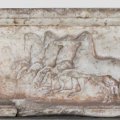In an effort to eliminate the global burden of dengue fever, an Australian-led international research team will this week commence a 12-week field trial in the Cairns suburbs of Yorkeys Knob and Gordonvale.
"Over the next three months we will release approximately 40 mosquitoes from every fourth house within the field trial areas of Yorkeys Knob and Gordonvale,” said ‘Eliminate Dengue’ project leader, Professor Scott O’Neill of The University of Queensland's School of Biological Sciences.
“By April we should know if we are on the right track or not, in our bid to stop the Aedes-aegypti mosquito from being able to transmit the dengue virus between people.”
The field trial involves introducing strains of a naturally-occurring bacterium called Wolbachia into the mosquito population, which through laboratory research has been shown to act like a ‘vaccine’ for the mosquito.
Wolbachia mosquitoes have been bred in a purpose-built mosquito facility at James Cook University, Cairns.
In the lead up to this week's world-first release, the Eliminate Dengue team has dedicated significant resources to ensure the Cairns community is fully informed on the project.
This has resulted in large numbers of residents within the field trial sites registering their support and allowing the field team to release the mosquitoes from their backyards.
“Without the permission from residents to enter their yards, the field team would have to release the mosquitoes from the street which would not give us the best results,” said Professor O’Neill.
“I would like to thank all the residents and business groups who have shown us their support and particularly the volunteers of the Yorkeys Knob SES who have spent their time talking to residents on our behalf.”
Prior to this week’s release the project field team spent December visiting homes in the field trial areas manually reducing existing natural mosquito numbers.
“Having spent this time suppressing potential breeding sites, we don’t expect residents to experience any increase in mosquito numbers during the field trial period then would normally occur at this time of year,” said Field Trial Manager, Brian Montgomery.
The project announced in September that it had regulatory approval from the Federal Government’s Australian Pesticides and Veterinary Medicines Authority (APVMA) and was rated by the CSIRO as a research method which has ‘negligible’ risk to people and the environment, the lowest rating possible.
Cairns residents will be provided with regular updates on how the research is progressing with updates distributed through the project newsletter, local media articles, presentations, meetings and the project website www.eliminatedengue.com
“If these initial trials are successful they will be followed by similar trials in Vietnam towards the end of 2011,” Professor O’Neill said.
“If those experiments are successful then we might expect to see full implementation and control of dengue in the Cairns region in a two-four year timeframe.
"If we encounter unexpected difficulties, for example if we were to determine that the Wolbachia infection did not spread easily into wild mosquito populations, then it may take a longer time to fine-tune the technology until we are ready for full deployment.” s
The project is funded by the Foundation for the National Institutes of Health as part of the Bill & Melinda Gates Foundation’s ‘Grand Challenges in Global Health’ initiative.
It also receives funding from the National Health and Medical Research Council of Australia as well as the Queensland Government.
For more information contact:
Katherine Barbeler
kbarbeler@webershandwick.com
02 9994 4406 / 0439 941 632
Matthew Pearman
mpearman@webershandwick.com
02 9994 4469
.jpg)



